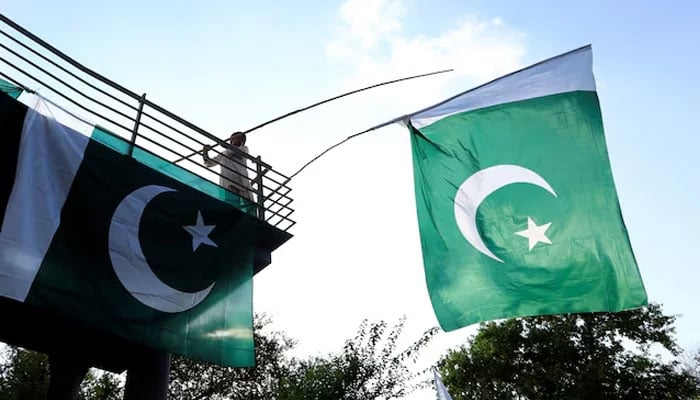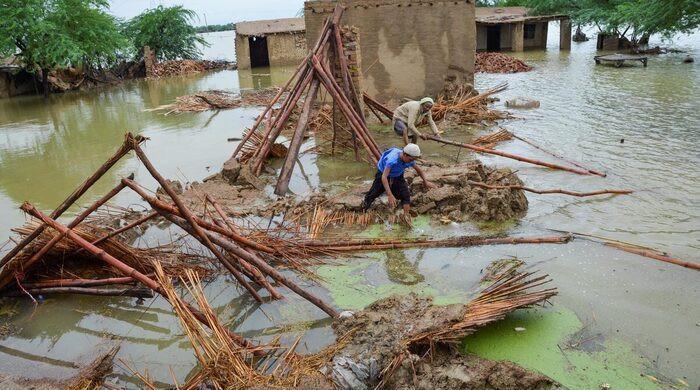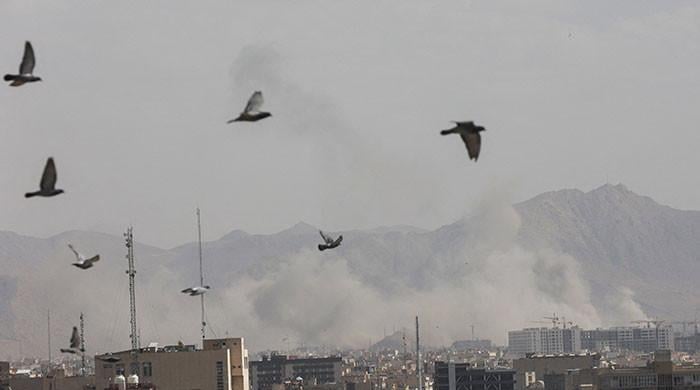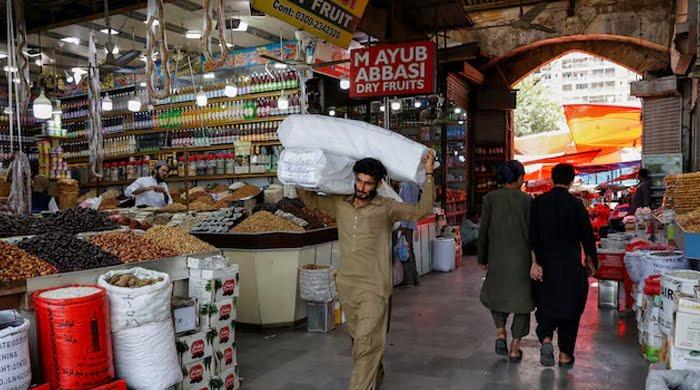An eternal spark of hope
Strength of a nation is not reflected by display of its armament stock, but by forging unity among its people
November 22, 2025

Time is never static. Its importance and relevance are embedded in its movement wherein we also find varying shades of both the great and the ordinary.
In these shades are inscribed the everlasting stories of potentates and their self-proclaimed might as also their fall from the pedestals of power and grace to be forgotten across a vast expanse of dust. The tragedy is that, though the lessons from time are transparent, there are few who assimilate them to be guided to their avowed destinations. Instead, they fight the dictates of time to be buried beneath mounds of forgetfulness.
We have witnessed a repeat of this phenomenon through centuries. Neither time has changed its inherent character nor the usurpers of power their lopsided infatuations. While the former has continued to traverse its path, it is the ones absorbed with a maniacal urge to force it to change its course who have bitten dust.
The political canvas of Pakistan presents a similar picture, with autocrats dabbling periodically to take over the reins of power. At the beginning of all such interregnums, the concept of national interest is invoked and lofty promises made to fulfil for speedy progress. But it does not end like that. In addition to being forced to vacate their seats in ignominy after running out of steam, these interventions have damaged the burgeoning political system gravely. Consequently, it could never attain maturity to carry the dreams of people to fruition.
Because of repeated derailments, the country has suffered on innumerable counts. Throughout the last 76 years, all we have succeeded in doing is creating a beneficiary class which has plundered the state hollow of its resources and riches. The advent of every new adventurism has only strengthened the hold of this class which has directly influenced the task of policy formulation to their exclusive profit. Every effort to bring in a change for the benefit of the ordinary people has been blunted through use of the full might of the state.
But this has not brought peace to a suffering land. With the vanquishing of people’s dreams, a seething resistance syndrome has taken roots which continues to grow with the passage of time. Its germs reside in the blatant manner the country has been hijacked frequently by undemocratic forces trying to instil their own narrative into the body politic of the state.
Having not succeeded in this objective, they have, nevertheless, continued trying to impose their writ upon the people much to their angst. This has also intensified the dislike they nurture for the ruling beneficiary class which has been hoisted through use of undemocratic means, the worst of whom are currently managing the corridors of power. In the process, the state is showing unmistakable signs of division and discord.
Entrapped in this tricky web, the need to extricate the country from its damaging tentacles is only increasing with time. But it appears there is neither any understanding of this harrowing development, nor any urgency to find a viable mechanism to break the stranglehold. The ones with the instrument of power are using it recklessly to subdue their opposition and those who are being brutalised by an unscrupulous use of the state machinery are getting ever more charged to undo the incumbent undemocratic aberration.
The most worrying aspect of this scenario is that the fundamental structure of the state based in the trichotomy of power is being bludgeoned to ground and, in its place, a single instrument-driven approach is being implemented where the entire power structure would be controlled by the executive and it will have a so called ‘constitutional’ cover to use it without constraint to subdue the other two pillars, the judiciary and the legislature, which have been rendered subservient to it.
As a matter of fact, the burial rituals of the latter two branches of the state have been performed vide the 26th and the 27th constitutional amendments which have been adopted by non-mandated assemblies, not reflecting the will of the people. In the process, the constitutional face of the country has been brutally mauled, and, with it, any hope of salvation has been snuffed out.
It is difficult to understand why we have reached this point. The constitutional edifice of the country is sacrosanct and its contents can be altered only by democratically elected members in an environment which is completely free of fear. It cannot and should not have been trampled upon by unelected legislators who, with prospect of abduction looming, were driven like cattle to obey the dictated command, which they did in utter obeisance.
This has disfigured the country which reflected the aspirations of the people. This has punctured the faith they nurtured that it would free them from the clutches of slavery and bring them good tidings. All that has been doused. As Faiz Sahib had poignantly lamented: “This pock-marked light, this night-stricken dawn,/ This is not the dawn we had waited for,/ This is not the dawn that had spurred us/ To navigate the sky’s limitless expanse/ And find the ultimate destination of the stars./ Surely, the slow, placid night
Will touch its inexorable shore./ Surely the moorings of the heart’s agony/ Will come to rest somewhere.”
The point we have reached neither reflects the dream that Pakistan once was, nor does it give hope that we can still tackle the crisis that we are faced with. When one refuses to learn from the inexorable movement of time, from its highs and lows, one is bound to face an intractable situation like the one we have so assiduously created for ourselves. Charting the way forward demands the very best in human faculties and commitment. But I don’t see any such spirit reflected in what continues to happen in the country. As a matter of fact, the situation is becoming more gruesome with each passing day where the prospect of reconciliation is being pushed further back and that of confrontation becoming a veritable possibility.
The strength of a nation is not reflected by display of its armament stock, but by forging unity among its people. The scene enacted at Adiala a few days ago shows alarming desperation among the ruling echelons. All sensible people agree that this should be addressed not by raising the crescendo of further division, but by pulling back and initiating remedial steps encompassing all stakeholders.
But then, disappointment is not an instrument of the brave. They live by their beliefs and commitments which create an eternal spark of hope. The time has come for desperados to cede space to sane voices to take charge and spur the much-awaited change.
The writer is a political and security strategist and the founder of the Regional Peace Institute. He is a former special assistant to former PM Imran Khan and heads the PTI’s policy think-tank. He tweets @RaoofHasan
Disclaimer: The viewpoints expressed in this piece are the writer's own and don't necessarily reflect Geo.tv's editorial policy.
Originally published in The News











